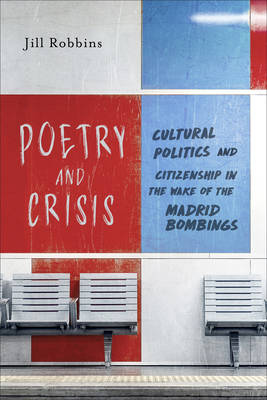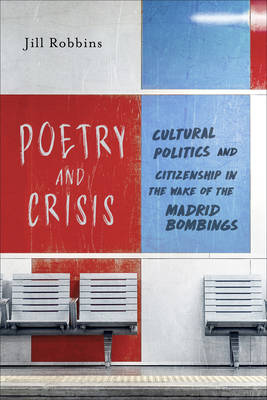
- Retrait gratuit dans votre magasin Club
- 7.000.000 titres dans notre catalogue
- Payer en toute sécurité
- Toujours un magasin près de chez vous
- Retrait gratuit dans votre magasin Club
- 7.000.0000 titres dans notre catalogue
- Payer en toute sécurité
- Toujours un magasin près de chez vous
Description
On March 11, 2004, Islamist terrorists carried out a massive bombing on Madrid's largely working-class commuter trains, leaving 191 people dead and more than 1,500 others wounded. This event, known in Spain as 11-M, was the second of three highly visible jihadist attacks on the West between 2001 and 2005, and the first in Europe, occurring just days before the national elections in Spain.
Arguing that 11-M marked a critical turning point in Spanish society, this book reveals how poetry played a unique role and reflected a new political and cultural sensibility defined by informal and non-hierarchical networks of communication and memorialization. After the attacks, poems circulated in public spaces in unexpected ways, creating links and relationships that were binding: they were inscribed on banners and monuments; musicalized in anthems, protest songs, and hip-hop music; reproduced on manifestos and blogs; sent by email and text; scribbled on scraps of paper and posted on walls; performed publicly; and painted as graffiti. These forms of expression also resonated strongly with Spanish poets who had already been exploring the possibilities of ethical engagement and aesthetic creation. Poetry and Crisis explores how this essentially poetic sensibility emerged from tragedy, laying the groundwork for similar kinds of affective and grassroots mobilization that continue to grow in Europe today.
Spécifications
Parties prenantes
- Auteur(s) :
- Editeur:
Contenu
- Nombre de pages :
- 192
- Langue:
- Anglais
- Collection :
Caractéristiques
- EAN:
- 9781487504731
- Date de parution :
- 23-01-20
- Format:
- Livre relié
- Format numérique:
- Genaaid
- Dimensions :
- 152 mm x 231 mm
- Poids :
- 430 g

Les avis
Nous publions uniquement les avis qui respectent les conditions requises. Consultez nos conditions pour les avis.






